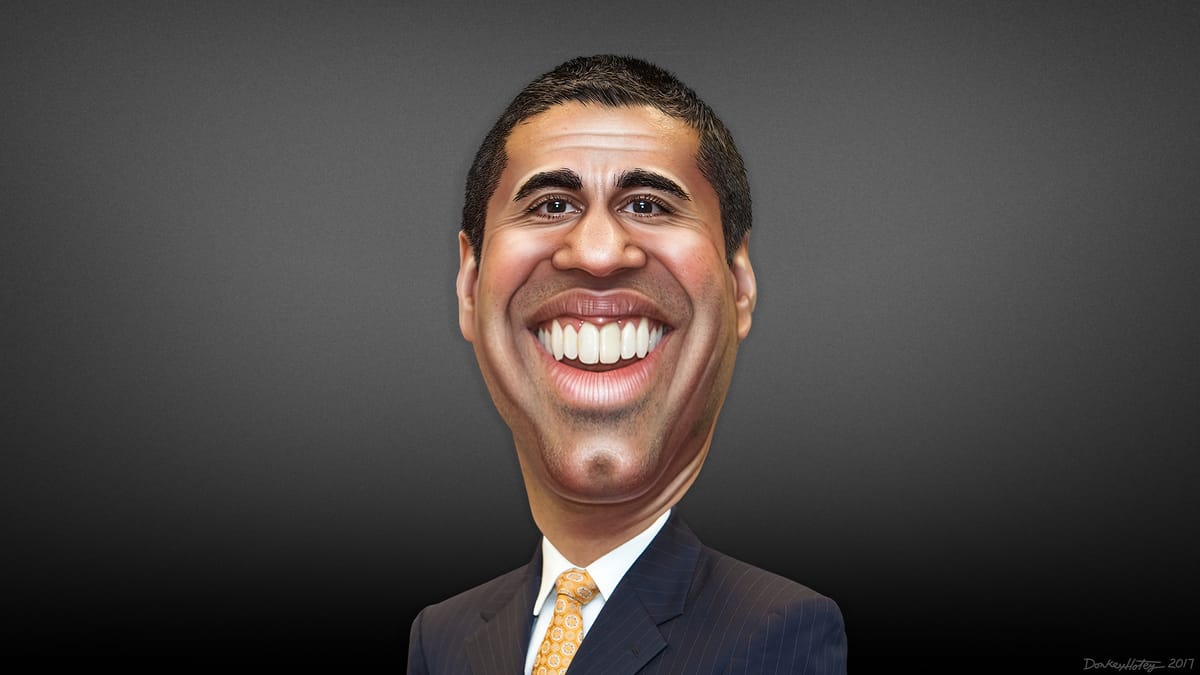FCC Chairman Under Trump Declares Agency’s Authority to Define Language on Political Speech
October 16, 2020 – The Federal Communications Commission dove deep into political territory on Thursday by declaring that the agency had authority to rule on questions pertaining to Section 230 of the Communications Decency Act. The move was widely criticized by technology industry and public advoca
Liana Sowa

October 16, 2020 – The Federal Communications Commission dove deep into political territory on Thursday by declaring that the agency had authority to rule on questions pertaining to Section 230 of the Communications Decency Act.
The move was widely criticized by technology industry and public advocacy organizations.
Grabbing hold of a recent statement in denial of certiorari by Justice Clarence Thomas that was critical of Section 230, FCC Chairman Ajit Pai on Thursday said: “Members of all three branches of the federal government have expressed serious concerns about the prevailing interpretation of the immunity set forth in Section 230 of the Communications Act. There is bipartisan support in Congress to reform the law. The U.S. Department of Commerce has petitioned the Commission to ‘clarify ambiguities in section 230.’ And earlier this week, [Thomas] pointed out that courts have relied upon ‘policy and purpose arguments to grant sweeping protections to Internet platforms’ that appear to go far beyond the actual text of the provision.”
With that as background, Pai said that the agency’s general counsel “has informed me that the FCC has the legal authority to interpret Section 230,” and that he therefore intended to move forward with the Trump Administration’s efforts to narrow the scope of the law.
The Center for Democracy and Technology, Public Knowledge, Tech Freedom, the Computer and Communications Industry Association and the Consumer Technology Association blasted the agency for the stance.
Tech Freedom said: “When a Democratic FCC Chairman pushed neutrality regulations at the behest of President Obama, Ajit Pai said: ‘We shouldn’t be a rubber stamp for political decisions made by the White House.’ Now Pai’s doing essentially what he lambasted Tom Wheeler for: proposing sweeping ‘neutrality’ rules at a President’s behest based on unprecedented claims of legal authority to regulate Internet services.”
Added Public Knowledge: “The FCC does not have authority to ‘clarify’ Section 230 — it is not a statute that Congress gave the agency any authority over whatsoever,” said John Bergmayer, legal director at Public Knowledge. “Additionally, if Chairman Pai’s planned rulemaking is at all informed by the NTIA petition, it is likely to be fatally flawed in other ways, as the NTIA insists on an interpretation of the statute that is contradicted by the plain meaning of the words that Congress enacted, and, in fact, that contradicts itself.”
CCIA agreed that the FCC does not have authority to issue rulemaking and has expressed this concern on multiple occasions.
“Retaliating against companies enforcing their Terms of Service by initiating regulatory proceedings is not how democracies are supposed to work,” said CCIA President Matt Schruers. “Being a political figure isn’t a free pass to break digital services’ content rules.”
Avery Gardiner, senior fellow for competition, data, and power at the Center for Democracy and Technology said at a Federal Communications Bar Association event in September that Section 230 reform “shouldn’t happen after an executive order from a disgruntled president.” Instead, she pointed to Congress’ authority to reform 230.
When prodded by FCC Commissioner Brendan Carr, who said he believed the FCC had rulemaking authority over Section 230, Gigi Sohn, distinguished fellow at the Georgetown Law Institute for Technology Law and Policy, admitted that while she did not want the FCC to have this authority, they very well might.
Sohn’s objections to this authority echoed the objections of Jamie Susskind, vice president of policy and regulatory affairs at Consumer Technology Association, who said that it was in Congress’ jurisdiction—not the FCC’s—to amend Section 230.









Member discussion